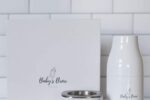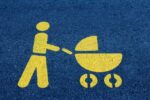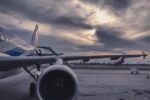TSA Guidelines for Baby Formula Transportation
Traveling with a baby can be a stressful experience, especially when it comes to navigating through airport security. The Transportation Security Administration (TSA) has strict guidelines in place for carrying liquids, including baby formula, through security checkpoints. It is important to understand these guidelines and be prepared before arriving at the airport to ensure a smooth and stress-free experience.
Understanding TSA Guidelines for Baby Formula is crucial for parents traveling with infants and toddlers. According to TSA regulations, passengers are allowed to bring a reasonable amount of baby formula, breast milk, or juice for their child through the security checkpoint. These items are exempt from the 3.4-ounce liquid limit, but they must be declared to the TSA officer for inspection. It is recommended to pack these items separately from the rest of your carry-on luggage to make the screening process easier.
Key Takeaways
- Understanding TSA Guidelines for Baby Formula is crucial for parents traveling with infants and toddlers.
- Preparation is key for a smooth TSA experience when traveling with baby formula.
- Special considerations and tips can help make the process easier and less stressful.

Understanding TSA Guidelines for Baby Formula
Traveling with a baby can be stressful, especially when it comes to packing all the necessary items. One essential item is baby formula. It is important to understand the TSA guidelines for baby formula to ensure a smooth and hassle-free travel experience.
TSA Regulations on Baby Formula and Breast Milk
The TSA regulations allow passengers to bring baby formula, breast milk, and juice for infants or toddlers in reasonable quantities through the security checkpoint. These items are exempted from the 3.4-ounce liquid rule. However, they must be presented for inspection at the security checkpoint.
Passengers traveling with baby formula or breast milk should inform the TSA officer at the beginning of the screening process. The formula or milk will be subject to additional screening, which may include opening the container and transferring a small amount of the liquid to a separate empty container for testing.
Medically Necessary Liquids Policy
In addition to the above regulations, the TSA has a medically necessary liquids policy. This policy applies to passengers who have a medical condition that requires them to bring liquid medications, nutritional supplements, or other medically necessary liquids through the security checkpoint.
Passengers with medically necessary liquids must inform the TSA officer at the beginning of the screening process. The liquids will be subject to additional screening, which may include opening the container and transferring a small amount of the liquid to a separate empty container for testing.
It is important to note that the medically necessary liquids policy does not apply to baby formula or breast milk. These items are covered under the TSA regulations on baby formula and breast milk.
In conclusion, understanding the TSA guidelines for baby formula is crucial for travelers with infants or toddlers. By following the regulations and policies, passengers can avoid unnecessary delays and ensure a smooth travel experience.

Preparation for Airport Security
When traveling with a baby, it is important to be prepared for airport security to ensure a smooth and stress-free experience. Here are some tips on how to prepare for airport security when traveling with baby formula and accessories.
Packing Baby Formula and Accessories
When packing baby formula and accessories, it is important to keep in mind the TSA regulations. Baby formula, breast milk, and juice are allowed in reasonable quantities in carry-on bags. However, they must be declared for inspection at the security checkpoint.
It is recommended to pack baby formula and accessories in a separate bag or container to make it easier for TSA officers to inspect. This can also help prevent spills and leaks in your other belongings.
Carry-On Baggage Rules for Baby Essentials
When traveling with a baby, it is important to know the carry-on baggage rules for baby essentials. Each passenger is allowed one carry-on bag and one personal item, such as a diaper bag, for free.
Baby essentials, such as diapers, wipes, and baby food, are allowed in carry-on bags and do not count towards the liquid limit. However, they must be removed from the carry-on bag and declared for inspection at the security checkpoint.
It is also important to note that all liquids, including baby formula, breast milk, and juice, must be placed in a quart-sized bag and presented for inspection at the security checkpoint.
By following these tips, parents can ensure a stress-free experience when traveling with baby formula and accessories.
At the Security Checkpoint
When traveling with a baby, parents and caregivers need to be aware of the TSA regulations regarding baby formula and breast milk. Here are some important things to know about the security screening process at the checkpoint.
Screening Process for Baby Formula and Breast Milk
Baby formula and breast milk are allowed in reasonable quantities in carry-on bags. These items are not subject to the usual liquid restrictions, but they must be screened separately from the rest of the carry-on items.
Parents and caregivers should inform the TSA officer at the checkpoint that they are carrying baby formula or breast milk. They should also remove these items from their carry-on bags and place them in a separate bin for screening.

Additional Screening Procedures
In some cases, the TSA officer may need to perform additional screening procedures on baby formula or breast milk. This may include opening the container and testing the contents for explosives or other harmful substances.
Parents and caregivers should be aware that the additional screening procedures may take some extra time. They should plan accordingly and arrive at the airport early to allow for any delays.
Interacting with TSA Officers
Parents and caregivers should remain calm and polite when interacting with TSA officers at the checkpoint. They should follow all instructions and be prepared to answer any questions about the baby formula or breast milk they are carrying.
If a parent or caregiver has any concerns or questions about the security screening process, they should ask the TSA officer for assistance. The TSA officer is there to help ensure the safety of all passengers and will do their best to answer any questions or concerns.
Overall, parents and caregivers should be aware of the security screening process for baby formula and breast milk when traveling with a baby. By following the TSA regulations and remaining calm and polite when interacting with TSA officers, parents and caregivers can help ensure a smooth and stress-free travel experience.
Special Considerations for Baby Formula
When traveling with a baby, it’s important to consider the special needs of their formula. Here are some guidelines to follow when traveling with baby formula.
Handling Frozen Items and Cooling Accessories
When traveling with frozen items such as ice packs, freezer packs, or gel packs, it’s important to make sure they are completely frozen before packing them in your carry-on bag. TSA allows frozen gel packs as long as they are frozen solid when presented for screening. If the gel pack is partially melted, slushy, or has any liquid at the bottom of the container, it will not be allowed through security.
Formula cooling accessories are also allowed through security. These include insulated bags, bottle coolers, and other items designed to keep formula cool. However, they must be removed from your carry-on bag and placed in a bin for screening.

Guidelines for Liquid, Powdered, and Puree Formulas
When it comes to baby formula, there are three main types: liquid, powdered, and puree. Each type has its own guidelines for traveling with it.
Liquid formula is allowed in carry-on bags in quantities greater than 3.4 ounces, but it must be declared at the security checkpoint. TSA may need to perform additional screening on the formula, so allow extra time for this process.
Powdered formula is also allowed in carry-on bags, but it may be subject to additional screening. TSA may need to open the container and test the powder for explosives. To avoid delays, pack powdered formula in a separate container and declare it at the security checkpoint.
Puree pouches are allowed in carry-on bags, but they must be screened separately from other liquids and gels. Pack them in a clear plastic bag and remove them from your carry-on bag for screening.
By following these guidelines, parents can ensure that their baby’s formula is safe and secure during air travel.
Traveling with Infants and Toddlers
Traveling with infants and toddlers can be a daunting task, especially when it comes to bringing along feeding accessories and additional items. However, with a little preparation and knowledge of TSA regulations, parents and guardians can make the process much smoother.
Feeding Accessories and Additional Items
When traveling with an infant or toddler, it is important to pack enough formula, baby food, and toddler drinks to last the duration of the trip. TSA allows these items to be brought through security in reasonable quantities, but they may need to be screened separately from other carry-on items. It is recommended to pack these items in a clear plastic bag and inform the TSA officer at the checkpoint that you are traveling with these items.
Breast milk pumping equipment is also allowed through security, but it must be removed from its carrying case and screened separately. It is recommended to bring only the necessary equipment and to pack it in a separate bag to make the screening process easier.
Accommodations for Parents and Guardians
TSA Cares is a program designed to assist travelers with disabilities and medical conditions, including those traveling with infants and toddlers. Parents and guardians can contact TSA Cares to request assistance with navigating the security screening process and to receive information on what to expect at the checkpoint.
In addition, many airports offer accommodations for parents and guardians traveling with infants and toddlers, such as designated family restrooms and nursing rooms. It is recommended to research the airport beforehand to find out what accommodations are available.
Overall, traveling with infants and toddlers can be a manageable experience with the right preparation and knowledge of TSA regulations. By packing feeding accessories and additional items properly and utilizing accommodations available, parents and guardians can make the trip much smoother for themselves and their little ones.

Prohibited Items and Security Measures
Understanding Prohibited Items
The Transportation Security Administration (TSA) has strict rules regarding what items are allowed in carry-on bags and checked luggage. It is important for travelers to understand these rules to avoid delays and confiscation of items. Prohibited items include explosives, firearms, and certain types of liquids.
Baby formula is allowed in carry-on bags, but it is subject to additional screening. Liquid-filled teethers and plastic bags containing formula are also allowed, but they must be removed from the bag and screened separately. It is recommended that travelers bring only what is needed for the duration of the flight to avoid delays.
Advanced Screening Technologies
The TSA uses advanced imaging technology (AIT) to screen passengers and their belongings. AIT uses non-ionizing electromagnetic waves to create a detailed image of the individual and their belongings. This technology is safe for all passengers, including pregnant women and children.
Passengers who are selected for additional screening will be asked to step into the AIT machine and raise their arms. The machine will scan their body and create an image that will be reviewed by a TSA officer. If any prohibited items are detected, the passenger will be subject to further screening.
In addition to AIT, the TSA also uses other advanced screening technologies to detect prohibited items. These technologies include liquid explosives detection systems and explosive trace detection machines.
Overall, it is important for travelers to understand the TSA’s rules regarding prohibited items and security measures. By following these rules and being prepared for additional screening, travelers can help ensure a safe and efficient travel experience.
Tips for a Smooth TSA Experience
Traveling with a baby can be a daunting experience, especially when it comes to passing through TSA security checkpoints. However, with a few simple tips and tricks, parents can ensure a smooth and stress-free TSA experience.
Efficient Packing and Formula Preparation
Efficient packing is key when traveling with a baby. It is important to pack baby formula, bottles, and any necessary feeding accessories in an easily accessible location in your carry-on bag. This will allow for quick and easy access during the TSA screening process.
When it comes to formula preparation, TSA regulations state that formula, breast milk, and juice for infants or toddlers are allowed in reasonable quantities through the security checkpoint. It is important to note that formula must be presented for inspection and that all containers must be sealed and labeled with the baby’s name.
To save time and ensure a smooth TSA experience, parents can prepare baby formula in advance. TSA regulations allow for pre-mixed liquid formula in quantities of 3.4 ounces or less, as well as powdered formula in any quantity. Parents can also bring an empty bottle or thermos to fill with water for formula preparation once they have passed through security.
Utilizing TSA Resources and Support
TSA offers a number of resources and support for parents traveling with infants. Parents can request a private screening area for themselves and their baby or toddler, as well as a pat-down instead of going through the metal detector or full-body scanner.
TSA also offers a helpline, TSA Cares, which provides travelers with disabilities and medical conditions, including those traveling with infants, with assistance and information about the security screening process. Travelers can call the helpline at least 72 hours prior to their flight for assistance and to ask any questions they may have.
In conclusion, efficient packing and formula preparation, as well as utilizing TSA resources and support, can help parents ensure a smooth and stress-free TSA experience when traveling with a baby. By following these simple tips, parents can focus on enjoying their travels with their little one.
Frequently Asked Questions
How should baby formula be packed for air travel?
When traveling with baby formula, it is important to pack it properly to ensure that it is easily accessible and does not spill or leak during the flight. The formula should be packed in a clear, plastic, quart-sized bag and placed in a carry-on bag. It is recommended to pack enough formula for the entire trip, plus a little extra in case of delays or unexpected events.
Is it permissible to bring powdered baby formula on an airplane?
Yes, powdered baby formula is allowed on airplanes. It is important to note that the formula should be in its original packaging and the container should be sealed. If the container has been opened, it must be inspected by the TSA officer at the security checkpoint.
What are the TSA guidelines for traveling with baby formula?
The TSA has specific guidelines for traveling with baby formula. Parents or guardians are allowed to bring a reasonable amount of formula through the security checkpoint, even if it exceeds the 3.4-ounce liquid limit. The formula will be subject to additional screening, including X-ray and other types of inspection.
Can I carry hot water for baby formula through airport security?
Yes, parents or guardians are allowed to bring hot water for baby formula through airport security. The water must be in a thermos or other insulated container and will be subject to additional screening. It is important to note that the water must be tested by the TSA officer to ensure that it does not exceed the 3.4-ounce liquid limit.
What identification is required for a child when flying with the TSA?
Children under the age of 18 are not required to provide identification when traveling with the TSA. However, it is recommended to bring a copy of the child’s birth certificate or passport as a precaution.
Are there any restrictions on the amount of baby formula you can take on a plane?
There are no specific restrictions on the amount of baby formula that can be taken on a plane. However, it is important to pack enough formula for the entire trip, plus a little extra in case of delays or unexpected events. The formula will be subject to additional screening, including X-ray and other types of inspection.








